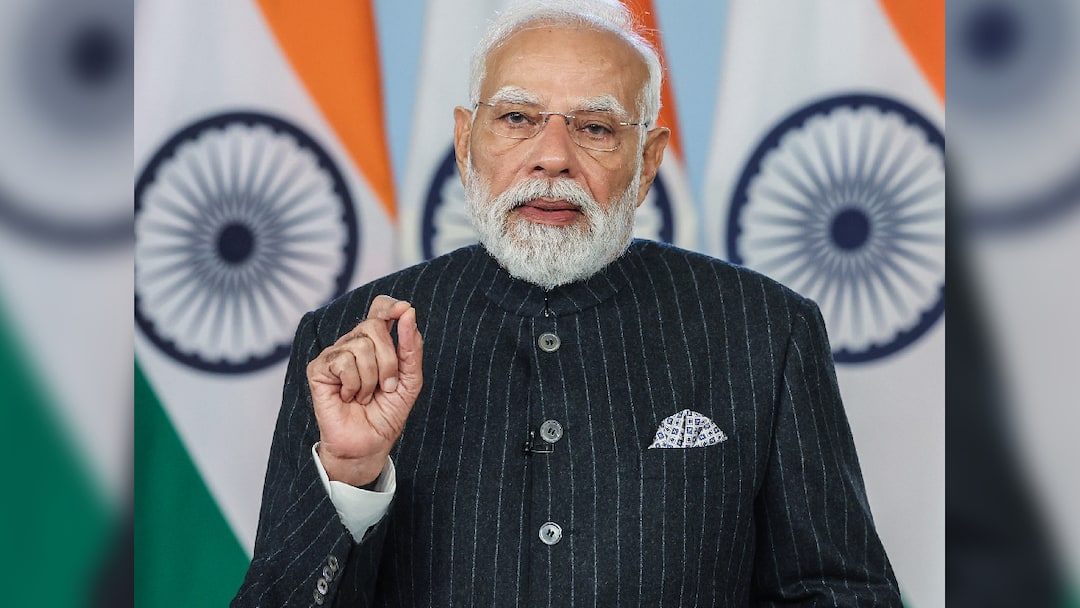Prime Minister Narendra Modi on Thursday praised India’s Gen Z for driving rapid growth in the country’s space sector, particularly after the government opened the industry to private participation. His remarks came as he virtually inaugurated Skyroot Aerospace’s new Infinity Campus in Hyderabad and unveiled the start-up’s first orbital rocket, Vikram-I, capable of placing satellites into orbit.
Speaking via video conference, the Prime Minister highlighted how India’s decision to open the space ecosystem has unlocked fresh opportunities for young innovators. “When the government opened the space sector, the country’s youth, especially our Gen Z, leapt forward to take full advantage of it,” he said, noting that more than 300 space start-ups now operate across India.
‘Gen Z Is Fueling New Technology’
The Prime Minister lauded young engineers, designers and coders who are working at the forefront of cutting-edge technologies. He said their contribution is transforming areas ranging from propulsion systems and composite materials to satellite platforms and rocket stages.
#WATCH | At the inauguration of Indian space startup Skyroot’s Infinity Campus, PM Modi says, “Today, GenZ engineers, GenZ designers, GenZ coders, and GenZ scientists are creating new technologies, whether in propulsion systems, composite materials, rocket stages, or satellite… pic.twitter.com/EMLOmAIbPR
— ANI (@ANI) November 27, 2025
“Gen Z engineers, designers and coders are creating technologies that were unimaginable just a few years ago,” PM Modi added. “India’s private space talent is making its mark globally, and the country’s space sector is becoming an attractive destination for global investors.”
India Aiming for Leadership in Launch Ecosystem
PM Modi emphasised that India is witnessing an “unprecedented opportunity” in the space domain, with private firms taking bold strides. He said Skyroot’s new campus symbolises the nation’s innovation, youthful energy and willingness to take risks.
“Our youth’s innovation, risk-taking ability and entrepreneurship are touching new heights,” the Prime Minister noted. “Today’s event shows that India will emerge as a leader in the global satellite launch ecosystem.”
India’s Space Journey: From Modest Beginnings to Global Recognition
Reflecting on India’s early space efforts, PM Modi said the country’s achievements have always been driven by determination rather than resources. He recalled how India began with limited means but steadily built a reputation for credibility and capability.
“India’s space journey began with limited resources, but our ambitions were never limited,” he said. “From carrying a rocket part on a bicycle to creating one of the world’s most trusted launch vehicles, India has shown that resolve matters more than resources.” He also commended the Indian Space Research Organisation (ISRO) for propelling the country’s space aspirations over the decades. Notably, Skyroot was founded by former ISRO scientists.
Skyroot’s State-of-the-Art Facility Targets Monthly Rocket Production
Skyroot’s new Infinity Campus spans roughly 2,00,000 square feet and is designed to support the end-to-end development of multiple launch vehicles. The facility can design, integrate and test rockets with an eventual capacity to build one orbital launch vehicle every month.
According to the Prime Minister’s Office, Skyroot is one of India’s leading private space companies. It was founded by Pawan Chandana and Bharath Dhaka, IIT alumni and former ISRO scientists who transitioned into entrepreneurship. In November 2022, the company became the first Indian private enterprise to send a rocket into space when it launched the sub-orbital Vikram-S.



